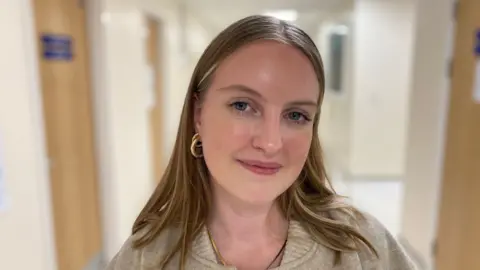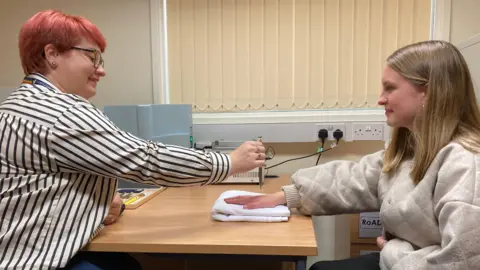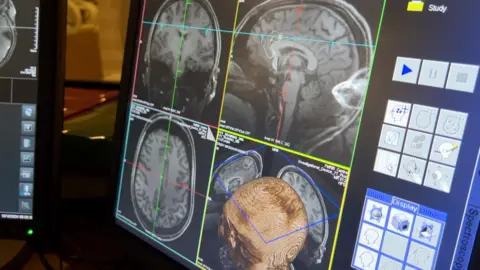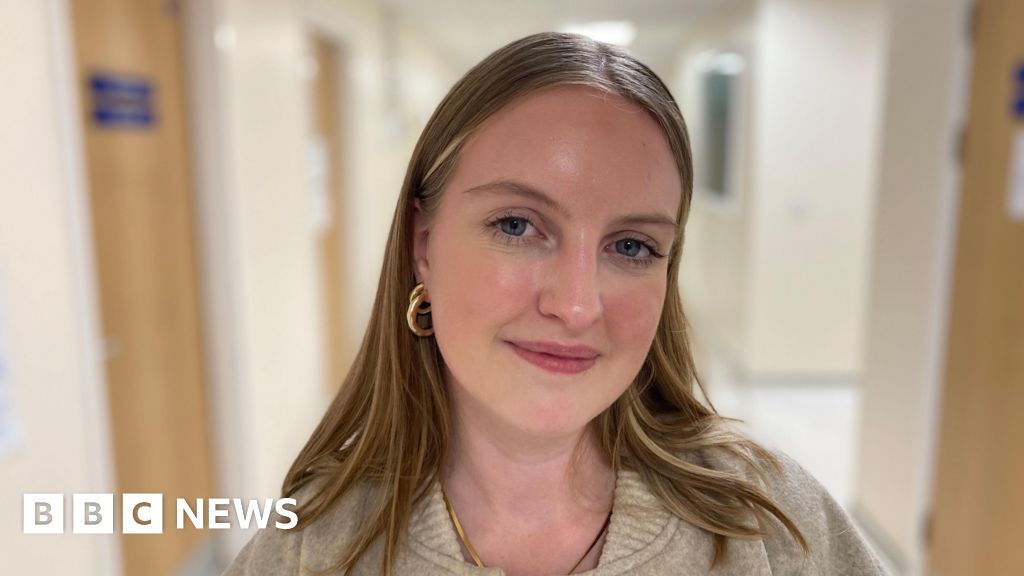

A new study seeks to identify changes in the brain when teenagers experience menstrual pain and whether this is associated with developing chronic pain later in life.
In what is said to be a world-first, researchers at the University of Oxford will test 11 to 20-year-olds using a range of tests, including MRI scans.
Half of the 120 volunteers recruited were load pane Half the projects will suffer from period pain, and half will not.
Dr Katie Vincent, professor of gynecological pain, said that although severe menstrual pain is “incredibly common”, not enough is known about it.
chronic pain
“I think it’s really important to take period pain seriously,” she says.
“About 30 to 40 percent of teenagers and young women will be unable to attend work, school, or perform normal activities due to severe menstrual pain.
“If we can reduce the risk of people developing chronic pain in the future, it will be much easier to treat it once it occurs.”
Dr Vincent said chronic pain, which is pain that lasts for more than three months, affects around 30% of the UK population and poses a significant economic cost to individuals, society and the NHS.
Researchers say it’s much more likely to affect women than men, but it’s unclear why some people get it and others don’t.
Dr. Vincent said the incidence of chronic pain appears to start in the teenage years, around the time girls start their periods.


Eliza started experiencing menstrual pain when she was in the 11th grade of secondary school.
Her teachers have been supportive, but the 17-year-old said she still needs to take a few days off if the pain gets too bad.
“It definitely interferes with my daily life…It hurts so much that I want to stay in bed all day,” she said.
Eliza, who is now attending university, said the pain worsened and lasted for up to a week, and painkillers no longer worked.
“It feels like I’m squeezing a wet towel inside my stomach, my legs hurt, my back hurts, it’s like a general pain,” she said.
She added that it sometimes affected her sleep, made her more emotional and made her feel lonely.


As part of the trial, the researchers will conduct a series of tests on volunteers who have had their periods for one, three or five years to see when brain changes are most likely to occur.
Participants will be tested during their period and 10 to 14 days after the end of their period.
“It’s about understanding the biology and understanding the neuroscience behind pain,” said postdoctoral researcher Dr. Lydia Coxon.
“I also think it’s really important to be able to identify when these changes occur, because when we think about clinical interventions in the treatment of menstrual pain, it’s important to be able to target them to make them particularly effective. Because it can be very important when you need to narrow it down.”
Dr Coxon said she felt it was time to change the narrative that all menstrual pain is normal.
“Some people experience menstrual pain and it has a profound impact on their lives. It never helps if we tell them to just put up with it,” she says.
“And if we continue to talk like this, it’s harmful and will only lead to further mistrust in the system.”


